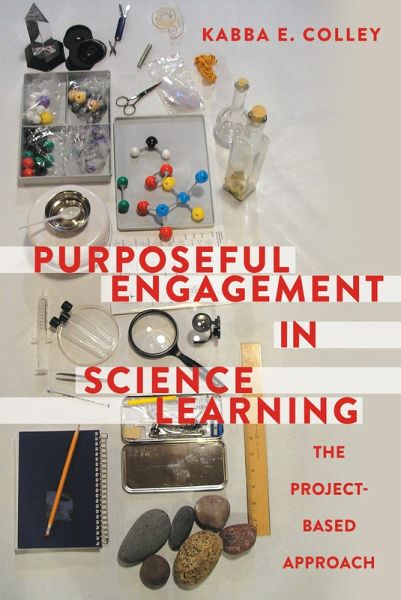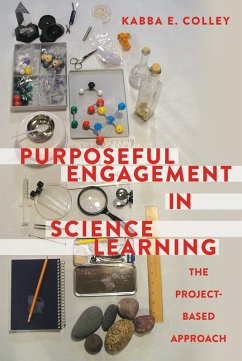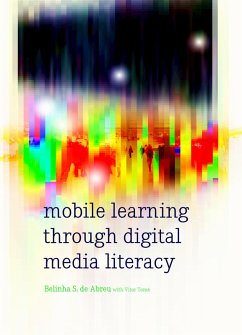
Purposeful Engagement in Science Learning (eBook, ePUB)
The Project-based Approach
Versandkostenfrei!
Sofort per Download lieferbar
Statt: 101,95 €**
37,95 €
inkl. MwSt.
**Preis der gedruckten Ausgabe (Gebundenes Buch)
Alle Infos zum eBook verschenkenWeitere Ausgaben:

PAYBACK Punkte
19 °P sammeln!
Purposeful Engagement in Science Learning provides a blueprint of how teachers and their students can engage in science learning that mirrors the way science is practiced. It is written for K-16 science educators as well as those in the informal science education sector. The framework for this book is based on the project cycle, which is consistent with the process of scientific inquiry. Chapter One reviews the historical, philosophical and psychological foundations of project-based scientific inquiry (PBSI) and the evolution of this approach in the U.S. Chapter Two examines and synthesizes th...
Purposeful Engagement in Science Learning provides a blueprint of how teachers and their students can engage in science learning that mirrors the way science is practiced. It is written for K-16 science educators as well as those in the informal science education sector. The framework for this book is based on the project cycle, which is consistent with the process of scientific inquiry. Chapter One reviews the historical, philosophical and psychological foundations of project-based scientific inquiry (PBSI) and the evolution of this approach in the U.S. Chapter Two examines and synthesizes the research on PBSI. Chapter Three explores how to plan PBSI and offers practical strategies for veteran and novice science educators alike. Chapter Four presents different strategies for implementing PBSI with particular emphasis on factors to consider, including the roles and responsibilities of teachers and students. Chapter Five provides selected case histories of successful PBSI. Chapter Six deals with the different methods of evaluating and assessing students' learning in PBSI environments and provides examples of performance-based assessments suitable for evaluating students' learning. Chapter Seven examines the relationship between PBSI, after-school programs and community involvement. Finally, Chapter Eight identifies and describes relevant resources that could be used to support and enhance PBSI. This book is organized in a way that allows science educators to address the Next Generation Science Standards (NGSS), while at the same time, helping students learn science in ways that are relevant to their lives.
Dieser Download kann aus rechtlichen Gründen nur mit Rechnungsadresse in A, D ausgeliefert werden.













